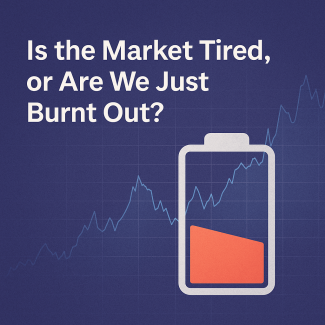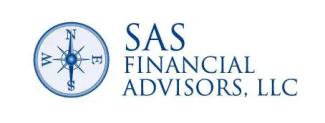
Is the Market Tired, or Are We Just Burnt Out?
I think investors are exhausted. I think I am exhausted. There is so much information coming at us and in the attention economy, that is where the action is. Attention has become the most valued commodity in the economy.
What do tariffs actually mean? Is it doom and gloom or a smart strategy? Greg Ip in the WSJ says Trump is winning the trade war.
There is no doubt that NATO members are increasing their percentage of GDP allocated to NATO for self-defense. Illegal border crossings are practically at zero. With these seeming successes comes a bombardment of information—television appearances, spontaneous press conferences on the way to the helicopter. Those appearances are filled with false facts, blame games, and questions about Jeffrey Epstein.
Even with any degree of success, as Greg Ip documents, it comes with the exhaustion of chaos and potential serious negative consequences. Even those successes fade quickly as the news moves on to the next scandal.
In the meantime, so far, the economy is holding up. The last CPI report was the first with indications that tariffs and prices in general continue to climb. This is in contrast to promises of declining prices.
During the Biden years, the economy remained robust—at least according to the data. But the data lost out to the vibeconomy.
What Is the Vibeconomy?
A new term is buzzing through discussions about the future of work, business, and the economy itself: vibeconomy. This multifaceted concept captures a significant shift in how we perceive, create, and participate in economic activity. At its core, the vibeconomy describes an economic landscape increasingly influenced by subjective feelings, intuition, and emotional resonance—the “vibe”—rather than solely traditional economic indicators.
The term has evolved to encompass two primary, yet interconnected, meanings:
The Rise of the AI-Powered Solo Entrepreneur
The first, and more recent, definition points to a burgeoning movement of solo entrepreneurs and individual creators who are leveraging artificial intelligence (AI) and their unique sensibilities to build and scale businesses. This iteration of the vibeconomy is characterized by a departure from large corporate structures in favor of agile, technology-driven, and highly personalized enterprises.
Key characteristics include:
- Individual Empowerment: One person can now access and manage everything from manufacturing to marketing using AI tools.
- The Primacy of “Vibe”: Success isn't just about the product—it’s about the emotional connection and authenticity behind it.
- Hyper-Personalization: AI enables deeper understanding of individual needs and moods.
- Vibe as a Differentiator: In a crowded market, the right vibe can foster loyalty and organic growth.
The Vibecession: When Feelings Override Facts
The second meaning, more commonly understood, is the vibecession—a term coined by economic commentator Kyla Scanlon in 2022. A vibecession is when strong economic data (like low unemployment and GDP growth) is overshadowed by a pervasive public feeling that the economy is struggling.
This shows the growing power of perception in shaping economic behavior—even when it contradicts the numbers.
Key drivers of the vibecession include:
- Information Overload & Negativity Bias: Media and social platforms amplify fear and pessimism.
- Lived Experience vs. Macro Data: Official stats often fail to reflect everyday financial realities.
Social Influence: Online networks shape shared economic sentiment—for better or worse.
What It Means for Businesses and Consumers
The vibeconomy presents both challenges and opportunities.
For businesses:
- Understand and engage with customer emotions
- Build authentic and resonant brand stories
- Use AI to offer personalized experiences
For consumers:
- Learn to navigate curated vibes
- Support entrepreneurs with values that align
- Recognize the influence your choices have on the market
The vibeconomy isn’t a fleeting trend. It’s a fundamental shift. Whether we’re talking about AI-powered solo entrepreneurs or entire economies swayed by public mood, the “vibe” is now a real force—one with lasting impact.
Politicians and economists couldn’t figure out why perception of the economy didn’t agree with the data. But the second definition of vibeconomy might offer some insight—and could impact the current administration as election cycles approach.
To see how these macro themes are influencing the market, read our related article:
Market Update: Debt, Inflation, Tariffs & Geopolitical Tensions
This website is informational only and does not constitute investment advice or a solicitation. Investments and investment strategies recommended in this blog may not be suitable for all investors. SAS Financial Advisors, LLC and its members may hold positions in the securities mentioned within this newsletter. SAS Financial Advisors, LLC is not responsible for any third-party content referenced.

